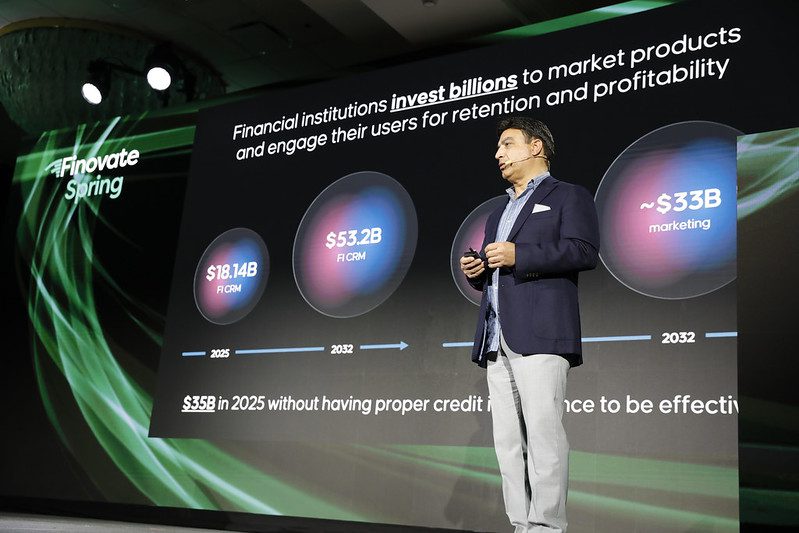
- Canada-based open banking platform Salt Edge has teamed up with UK-based trading platform Tradu.
- The partnership will help Tradu enhance its security infrastructure and meet PSD2 compliance regulations.
- Founded in 2013, Salt Edge made its Finovate debut at FinovateEurope 2017. Garri Galanter is CEO.
Open banking platform Salt Edge will help multi-asset trading platform Tradu enhance its security infrastructure and meet PSD2 compliance regulations courtesy of a newly announced partnership. The collaboration will help Tradu better defend itself and its customers from fraud while providing a frictionless experience for the platform’s traders and investors.
“Secure and compliant access to financial data is no longer optional; it’s essential,” Salt Edge Senior Open Banking Solutions Expert Dan Martalog said. “Collaborations like the one between Salt Edge and Tradu are crucial for enabling innovative platforms to scale confidently while meeting strict PSD2 requirements. By providing seamless SCA and compliance tools, we’re helping Tradu focus on what matters most: delivering a trustworthy and efficient trading experience to its users.”
Salt Edge’s full-stack open banking compliance solution will ensure that Tradu is fully aligned with PSD2 regulations and provide the platform with a streamlined user authentication process that leverages secure, Strong Customer Authentication (SCA)-ready flows. The partnership will also enable Tradu to offer additional services such as the MCI exemption, as well as a custom, third-party provider (TPP) portal.
Additionally, Tradu is completing adoption of Salt Edge’s Open Banking Gateway for Payment Initiation Services (PIS). This will enable Tradu traders and investors to top up their accounts directly from their UK and EU bank accounts, providing a funding experience that is fast, secure, and low friction.
“Security and compliance are at the core of our financial services,” Tradu Product Director and Founding Employee Tomasz Stupnicki said. “Our collaboration with Salt Edge enhances user trust, ensuring a seamless and protected financial experience.”
Founded in 2023 and headquartered in London, Tradu offers active traders and investors access to thousands of tradable assets including equities, commodities, cryptocurrencies, CFDs, foreign exchange, treasuries, and indices. The company’s partnership with Salt Edge comes as the firm prepares to bring its wallet services to additional markets in Europe. Tradu expects its alliance with Salt Edge will support connections to and simplify integration and compliance efforts for more than 500 financial institutions across more than 20 countries. Brendan Callan is Tradu’s CEO.
Salt Edge made its Finovate debut at FinovateEurope 2018 and most recently demoed at FinovateEurope 2019. The Ottawa, Ontario-based fintech was founded in 2013 and today provides access to real-time account data from 5,000 financial institutions across 50+ countries via its open banking gateway. Salt Edge also offers an open banking and PSD2 compliance solution with APIs, third-party provider verification tools, mobile Strong Customer Authentication (SCA), consent management technology, and more to help banks and Electronic Money Institutions (EMIs) become compliant with PSD2 and open banking requirements.
Salt Edge’s partnership news with Tradu comes one month after the Canadian company announced that it had teamed up with full-service product development firm Thinslices. The two companies have agreed to merge capabilities in order to streamline financial data aggregation and power account-to-account (A2A) payments for businesses. In March, Salt Edge announced that it was working with fellow Finovate alum Backbase to help foster broader and faster adoption of open banking.
“Regulatory compliance should not be a bottleneck for banks but rather a catalyst for growth and innovation,” Salt Edge Head of Partner Ecosystem Iulian Mitrea said. “By partnering with Backbase, we are equipping financial institutions with the tools they need to effortlessly thrive in the evolving open banking landscape.”












